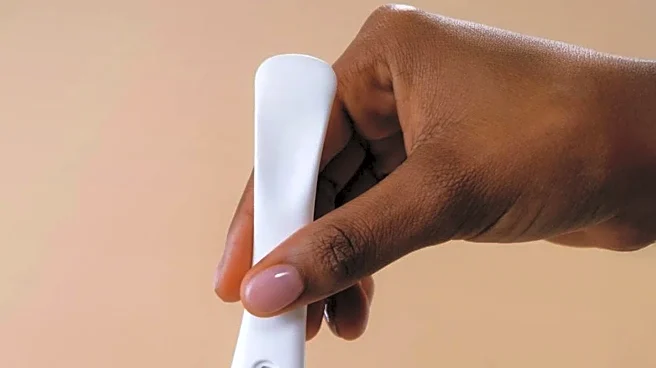What's Happening?
Recent research published in Nature highlights concerns over declining sperm quality, with mutations increasing notably around age 43. British researchers tracked sperm samples from 81 men, finding that
mutations in sperm increase with age, potentially leading to higher risks of passing harmful mutations to offspring. In response to these findings, at-home sperm testing kits have gained popularity, allowing men to test their fertility conveniently. These kits, available for under $100, provide results with over 97% accuracy, offering insights into sperm concentration and motility. The YO Home Sperm Test, one of the most validated systems, delivers results directly to users' phones, including a fertility score and resources for improving sperm health.
Why It's Important?
The decline in sperm quality and quantity has significant implications for men's health and fertility, highlighting the need for proactive measures. As awareness grows, more men are recognizing fertility as a shared concern, not solely a women's issue. The availability of affordable, accurate at-home testing kits empowers men to monitor their reproductive health, potentially leading to earlier interventions and lifestyle changes to improve fertility. This shift in focus towards men's reproductive health could influence public health policies and healthcare practices, encouraging more comprehensive approaches to fertility and reproductive health.
What's Next?
As the popularity of at-home sperm testing kits increases, further advancements in technology and accessibility are expected. Companies may continue to innovate, offering more sophisticated features and insights into sperm health. Healthcare providers might integrate these tools into routine check-ups, promoting regular monitoring of reproductive health. Additionally, public health campaigns could emerge, emphasizing the importance of men's fertility and encouraging proactive health measures. The growing interest in men's reproductive health may also lead to increased research funding and studies, further exploring the causes and solutions for declining sperm quality.
Beyond the Headlines
The rise of at-home sperm testing kits reflects broader cultural shifts towards self-care and personal health management. As men become more engaged in their reproductive health, societal perceptions of fertility and gender roles may evolve, fostering more equitable discussions around family planning and reproductive responsibilities. This trend also raises ethical considerations regarding privacy and data security, as personal health information is increasingly stored and shared digitally. Ensuring the confidentiality and protection of sensitive data will be crucial as these technologies become more widespread.








